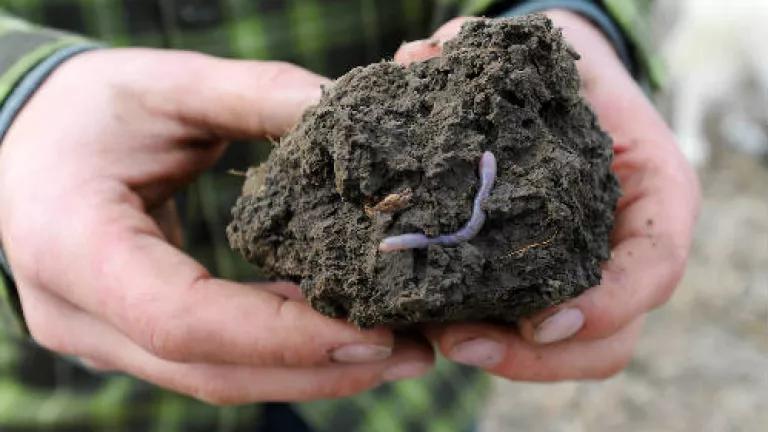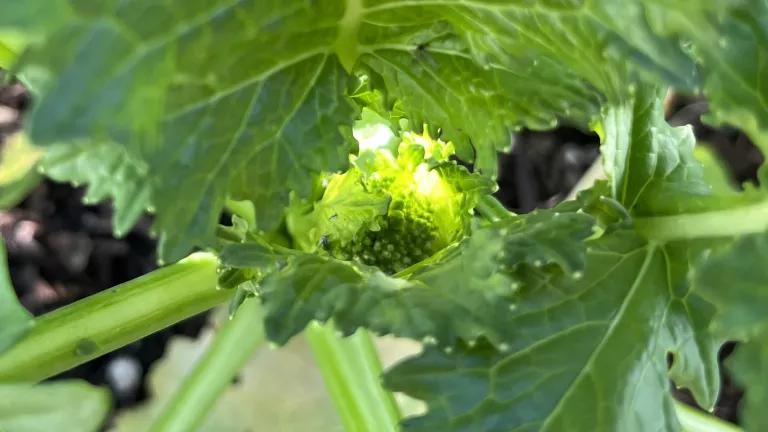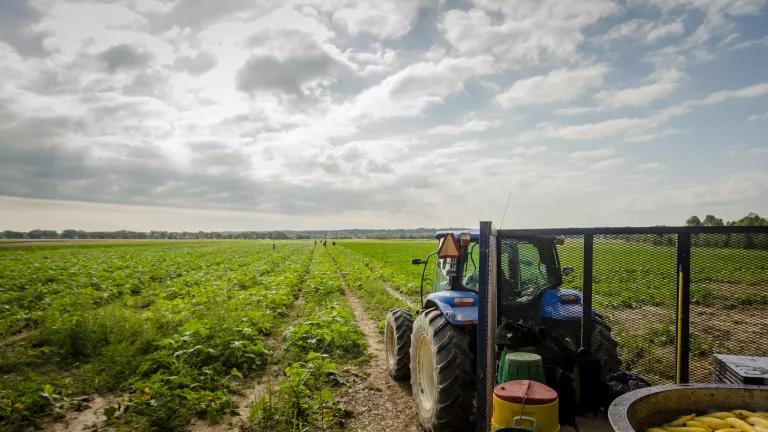
Reforming our farming systems can play a big role in combatting climate change
The message from climate scientists is clear: maintaining the status quo is simply not an option anymore.
The recently released Intergovernmental Panel on Climate Change (IPCC) Summary report written by the world’s top climate science experts sends a clear message:
- We are facing an unprecedented climate crisis caused by human activities and hitting 1.5 degrees C of global warming is likely to happ
- Without coordinated, sustained effort in both climate change mitigation and adaptation across all sectors, we will feel the potentially irreversible impacts globally - particularly in vulnerable communities.
- Economy-wide investments in our food systems can play a large role in both climate change mitigation and adaptation, but only if we move quickly and decisively, and choose wisely.
The time is now for the U.S. to follow the IPCC’s recommendations and make these economy-wide investments in our food system. This year, Congress will negotiate the most impactful piece of legislation related to agriculture, the 2023 Farm Bill, a nearly $1 trillion spending package that sets authorized funding levels for the next 5 years until the next Farm Bill is negotiated. NRDC’s Farm Bill priorities - advancing organic agriculture, increasing cover crop adoption, and reducing food waste – and the comprehensive Agriculture Resilience Act introduced this week by Congresswoman Chellie Pingree, who herself is a longtime organic farmer, closely align with the IPCC report’s recommended climate mitigation and adaptation options. The report outlines that to simultaneously reduce global GHG emissions by 60% before 2035 and adapt to changes that are already ongoing, we need to increase the ability of our agricultural systems to store carbon, effectively manage biodiversity, improve cropland management, and reduce food waste, all while preserving natural ecosystems.
The IPCC report is unambiguous about the path forward: we must scale up, adapt, and widely apply tried and tested options that are already available. Fortunately, food systems strategies that simultaneously address climate change mitigation and adaptation goals are ready to be deployed NOW:
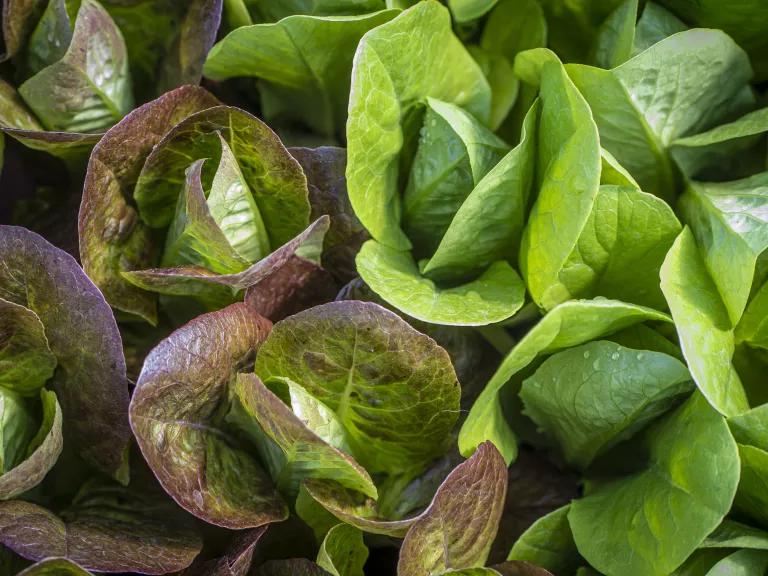
Organic farming systems help us store more carbon in the soil, increase soil biodiversity, and diversify farms.
- Farming systems such as organic & regenerative agriculture are land management approaches that supply farmers with tools to conserve soil moisture, diversify farms and landscapes, reduce reliance on greenhouse gas-intensive inputs, and advance an equitable, community-wide approach to climate mitigation. We need more flexible and comprehensive policies to reduce barriers to these climate-smart systems.
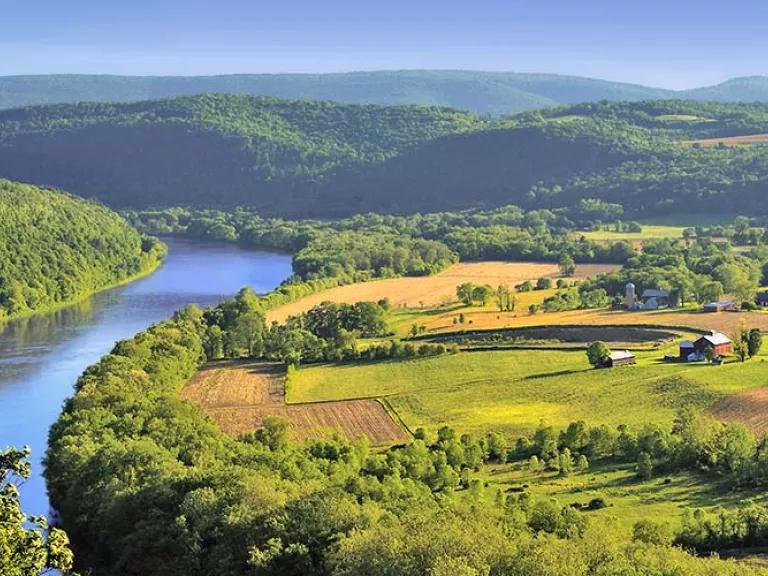
Agroforestry practices such as riparian buffers can help with flood control and water storage
Nicholas A. Tonelli via Flickr, CC BY 2.0
- Practices such as cover cropping and agroforestry help increase carbon storage in agricultural systems, reduce flood risks, improve water management and support diverse belowground ecosystems. Increasing the adoption of these practices through policy vehicles such as the COVER Act is one way that the federal government can invest in healthier soils and more resilient farms.

Improving waste management by preventing food loss and turning food scraps into compost can bring numerous environmental and social benefits.
- Preventing food loss across our food chain keeps food scraps out of landfills and incinerators and can be done through policy change and investment at the local, state, and federal levels. Locally, cities have and can continue to lead the way by improving municipal waste management and educating residents. States can enact proven waste reduction policies such as organic waste disposal bans. The federal government can provide more investment in coordinated research, education, and support these local and state efforts. Overall, this effort requires us to reexamine and redefine our cultural relationship with consumption, and it will bring environmental and social benefits such as agricultural water savings through increased compost use.
The IPCC report estimates that agricultural and food system reforms to mitigate climate change are among the lowest cost and highest potential options, comparable to emissions reductions gained from switching to wind or solar energy. Increasing the sustainability and resilience of our food systems can ensure that communities in the United States and throughout the world are able to feed themselves while protecting natural ecosystems. This Farm Bill has the chance to protect the historic $40+ billion Inflation Reduction Act investments empowering farmers to turn agriculture into a climate solution and double down on transformative, economy-wide investments needed to scale up climate-smart agriculture & forestry. We are at a pivotal moment in the climate crisis where bold and coordinated action to set the U.S. food and farming sector on a new and much more sustainable course can make a significant impact for America’s farmers, ranchers and eaters, and set an example globally.
The message from climate scientists is clear: maintaining the status quo is simply not an option anymore. Our leaders need to ensure that our investments in agriculture meet the moment and set our food system up to thrive in the future.



